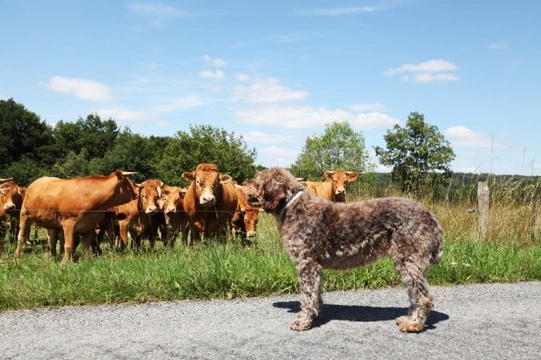
Understanding Your Dog's Behaviour: A Complete Guide
To effectively train your pet dog, understanding their ancestry and instincts is essential. Every dog, regardless of breed, ultimately descends from wolves. Many canine instincts from their wild ancestors still influence their behaviour today. Puppies try to follow these instincts, and without proper training, unwanted behaviours can become fixed habits. Early training, ideally before two years old, helps focus and curb these natural tendencies for a happier, well-mannered dog.
Being the pack leader is your role as a dog owner. Establishing a clear hierarchy and setting achievable training goals helps your dog know their place within the household pack, which includes everyone from adults to other pets. Consistency and positive, reward-based training foster security and comfort, making your dog more receptive and less anxious.
1. Understanding Your Dog's Behaviour and Instincts
Your dog’s body language speaks volumes about their feelings and intentions. Observing the entire body, including ears, eyes, mouth, tail, and posture, helps decipher what your dog is trying to communicate:
- Ears and eyes: Hold ears back often shows fear, forward ears can signal alertness or confidence. A hard stare may indicate aggression or focused attention.
- Mouth and tail: Tense lips, lips pulled back showing teeth, or a tucked tail can mean fear or aggression. A loosely wagging tail usually signals relaxation and happiness, but tail posture must be considered alongside the rest of the body.
- Posture: A relaxed dog has a loose stance; a fearful dog may crouch or freeze, while aggression often shows a rigid, forward-leaning stance.
Breed-specific traits affect how behaviours are displayed, so knowing your dog’s breed characteristics helps further interpret behaviour. For example, dogs with naturally erect ears or docked tails communicate differently than those with floppy ears or full tails.
2. Common Unwanted Behaviours and How to Manage Them
Barking at passers-by or strange noises is often misunderstood as nuisance behaviour but is rooted in natural territorial defense instincts. Dogs bark to warn intruders and alert their pack of potential threats. Punishing barking by shouting or physical means can increase anxiety and worsen behaviour.
Effective approaches include remaining calm, teaching a "quiet" command, and gradually exposing your dog to common triggers in controlled, positive ways. This socialisation helps the dog learn these triggers are not threatening, reducing excessive barking over time.
3. The Importance of Pack Instinct and Leadership
Dogs are social animals relying on clear hierarchy within their pack. Without confident leadership, your dog may attempt to assume control, leading to behavioural issues. Establish yourself as a consistent, firm, but gentle pack leader from day one.
Encourage submissive gestures through enjoyable reward-based training, such as teaching your puppy to "shake paws," "roll over," or "lie down." These not only teach obedience but also help your dog feel secure within their role.
Consistency in rules and training is vital. Allowing occasional exceptions confuses your dog about boundaries and may lead to increased unwanted behaviours. All family members should apply the same rules to avoid mixed signals.
4. Understanding Your Dog’s Social and Emotional Needs
Building a strong bond requires recognising your dog’s need for structure, social interaction, and mental stimulation. Regular, enjoyable training sessions strengthen your connection and provide your dog with purpose and clarity.
Respect your dog's comfort levels, providing safe spaces at home where they can retreat from stress. This reduces anxiety and improves overall wellbeing.
Where to Find a Puppy or Dog
When looking for a new dog, seek reputable breeders or adoption centres that prioritise the health and welfare of their animals. Research the breed’s characteristics and needs thoroughly to find a good match for your lifestyle.
For example, if you are interested in specific breeds like German Shepherd puppies or Labrador Retriever puppies, ensure you connect with recognised breeders who offer health guarantees and socialisation support. Alternatively, consider adopting a dog from local rescues to give a home to a dog in need.
Conclusion
Understanding your dog’s behaviour, from their ancestral instincts to body language, empowers you to train and nurture a well-adjusted companion. By becoming a confident pack leader and providing consistent, positive guidance, you offer your dog the security and structure they need. Combined with patience and empathy, you can enjoy a lifelong, rewarding bond with your dog.



